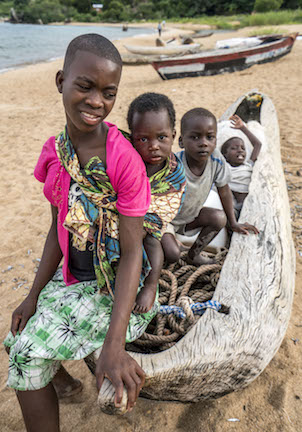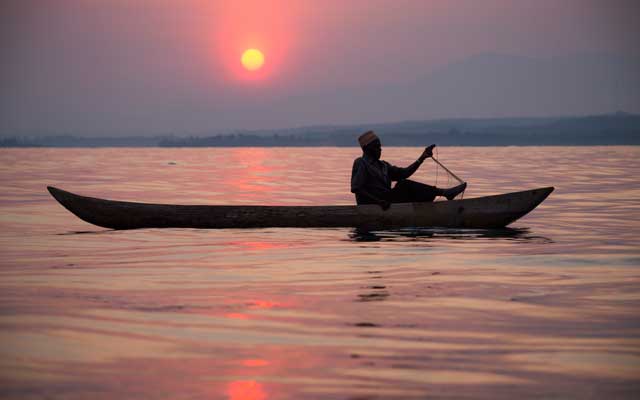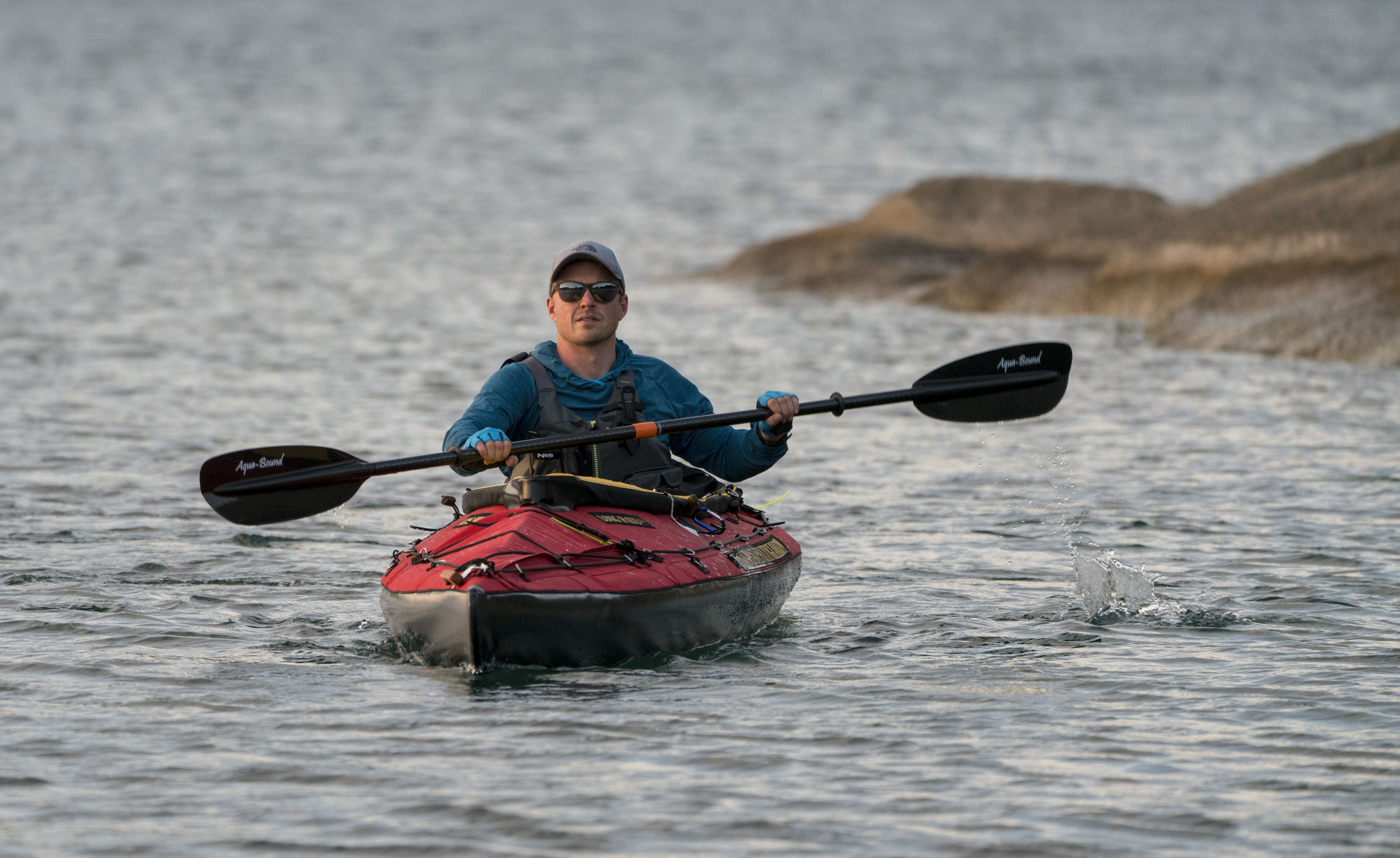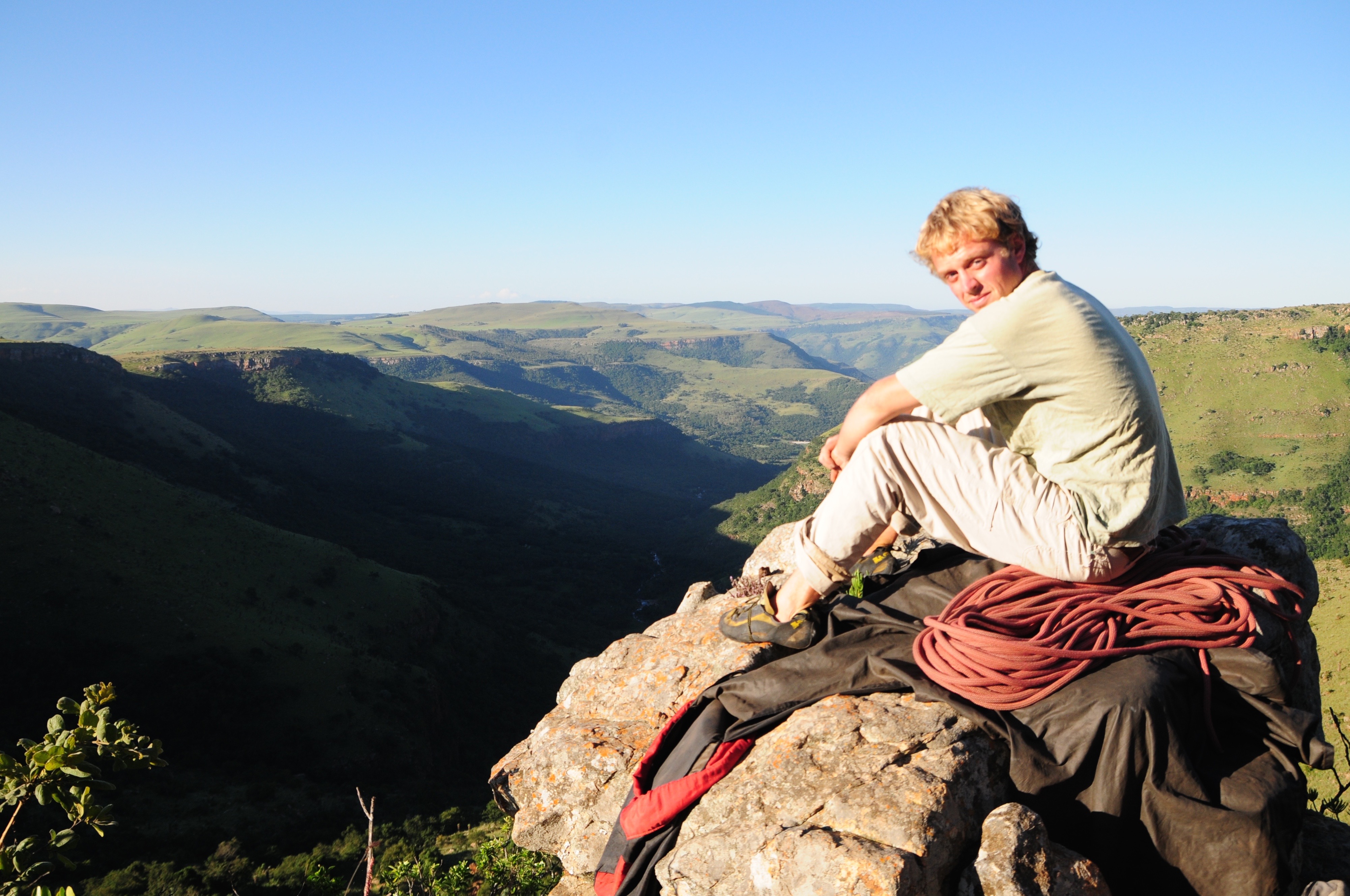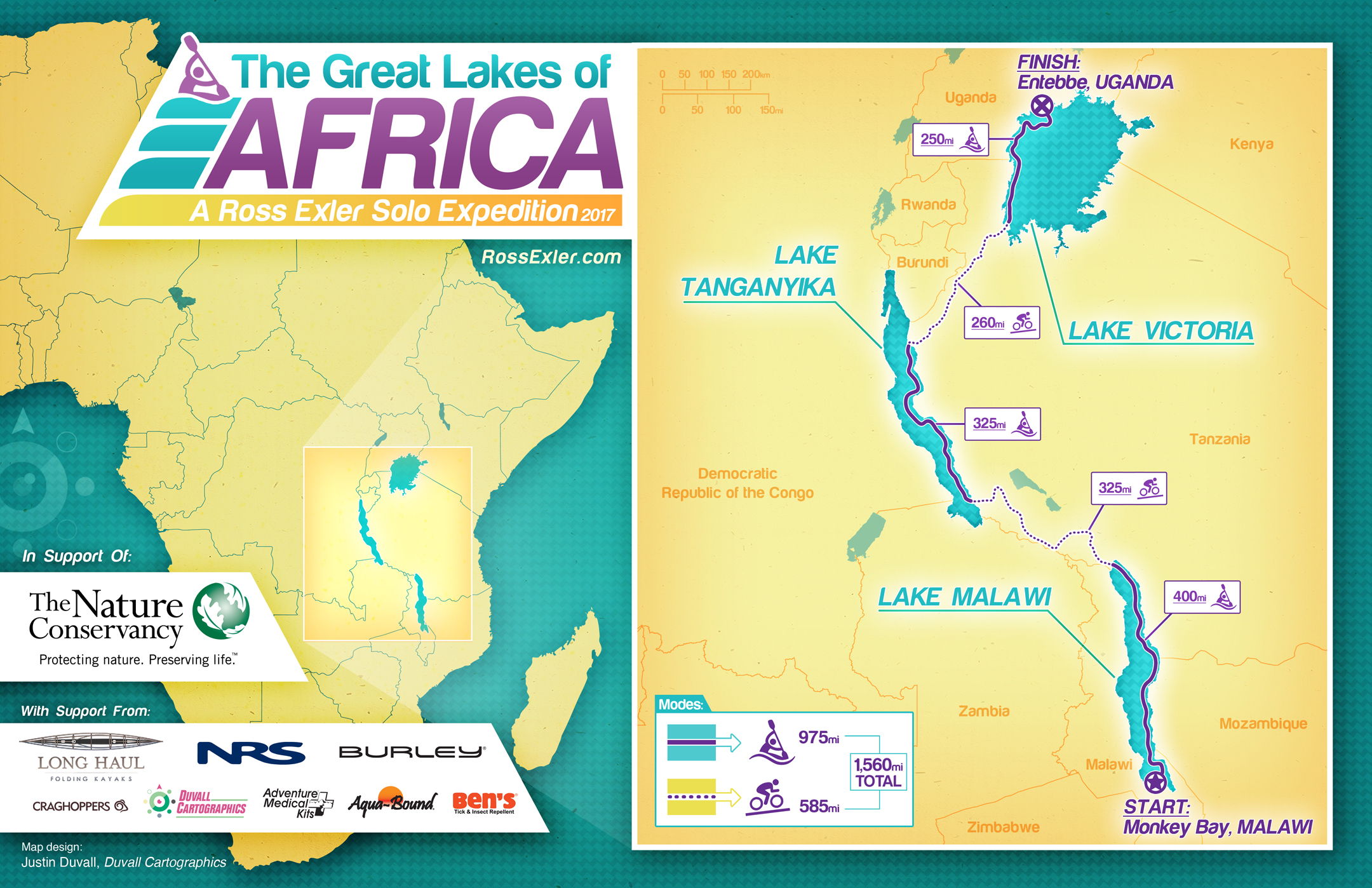Jan. 26. The trip is going well so far. A few days have been derailed by weather, but otherwise I’ve been making steady progress. I decided to paddle the Malawi side instead of the Mozambique side as they speak English on this side and I thought it would be interesting to be able to talk to people and hear about the lake and their lives firsthand. For the rest of the trip, virtually everyone will speak Swahili.
I’ve been following a routine of waking up around 5 and paddling until mid afternoon and then usually staying in small fishing villages at night. The people along the lake have been very kind and welcoming. They’re fascinated by all of my stuff, but especially the boat. They use dugout canoes, so my kayak is pretty shocking to them. My boat has been awesome, very stable, pretty fast considering I’m solo paddling a tandem and it’s loaded with a ton of cargo, and it easily fits all of my equipment. No issues whatsoever so far – the boat is helping a lot with my optimism and high spirits.
There haven’t been any mishaps yet. The only thing that’s a bit unsettling was that at one point I was paddling about 400 yards off the opening of a big lagoon, and I heard some sloshing in the water. I turned and saw a big crocodile about 20 yards away. It was at least 12 feet long and looking right at me. I definitely set a new personal speed record in the following minutes.
I planned the trip for 20 miles a day, and so far that seems pretty reasonable. My best day so far was 31 miles and my worst was 18, with a strong headwind. I’m sure that mileage will go up as the trip goes on and my fitness improves.
I have a few more days on this section, and then I’ll get to my first planned break – Nkhata bay. I’ll probably just be there for one1 rest day, but from there it kind of feels like the home stretch. From Nkhata Bay, I have about six more days of paddling and then this lake is in the bag and it’s on to bicycling towards Tanzania.
It’s been interesting to see the people along the lake, how they fish, and some of the environmental impacts. The lake is clear and blue except near rivers, where deforestation has caused huge amounts of sediment to turn the lake a muddy brown. The local people fish both using nets and lines with hooks. Some people are beach seining, which is pretty destructive. Others go out at night, far offshore, and use lights to attract the fish. It’s cool to look out on the lake at night and see dozens of lights in the distance.
I’m feeling good and confident. This lake should go down without too much of a fuss.



